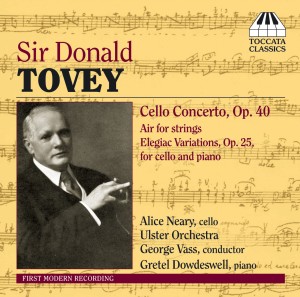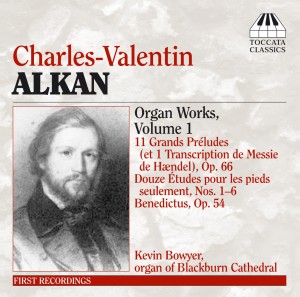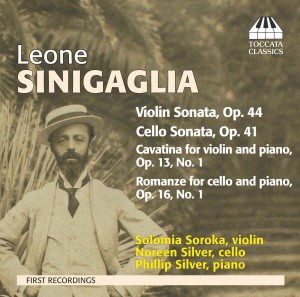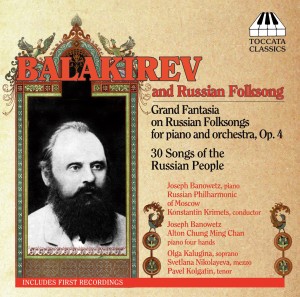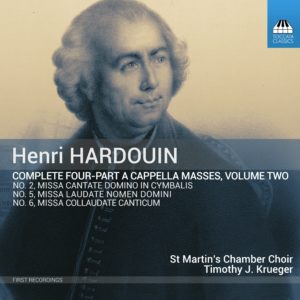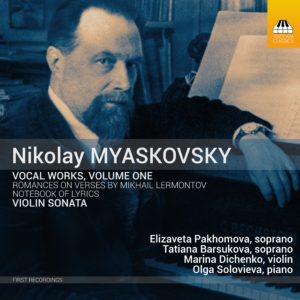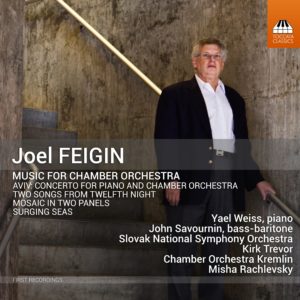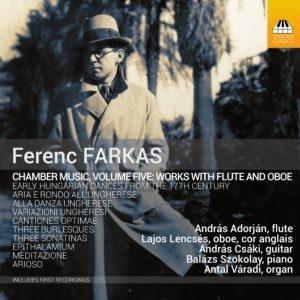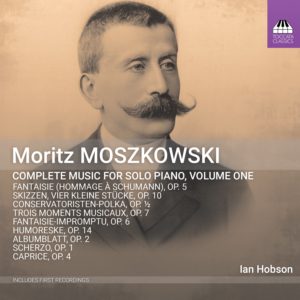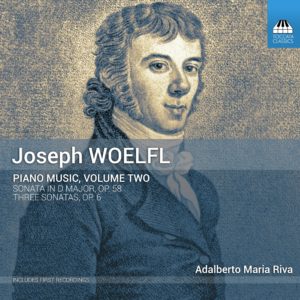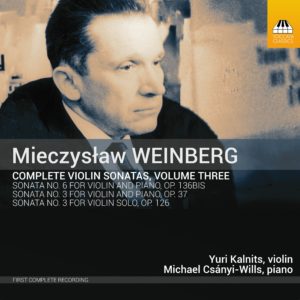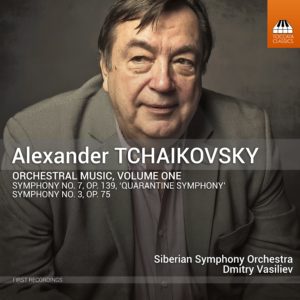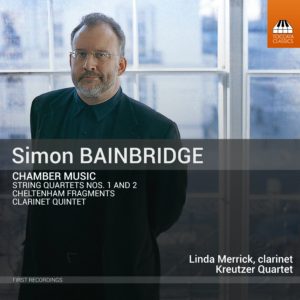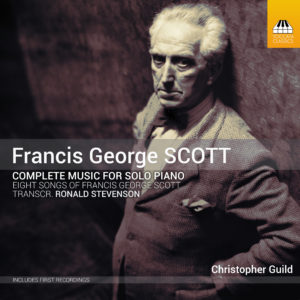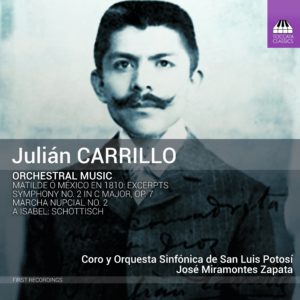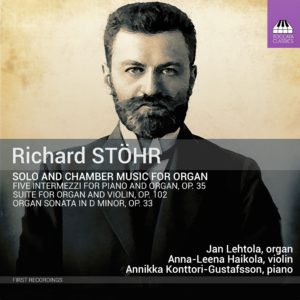Search Results for "Space Wolf: The First Omnibus mp3 torrent" – Page 29
Sir Donald Tovey: Cello Concerto, Air for strings, Elegiac Variations
Donald Tovey (1875–1940) has long been known as one of the finest writers on music in English – but he saw himself primarily as a composer. His Cello Concerto – written for his friend Pablo Casals in 1932-33 – may be the longest in history; indeed, as he worked on the score he wrote to a friend that the first movement would be a 'record-breaker’ and 'much the juiciest’ music he had yet produced. The work sits mid-way between Brahms and Elgar, but has a lyrical and dignified voice that is uniquely Tovey’s. The contrasting tone of the dark, heroic Elegiac Variations was inspired by the death of Robert Hausmann, cellist of the Joachim Quartet and a cherished chamber-music partner of Tovey’s. And the charming Air for strings reveals his delight in a well-turned Classical theme.
Alice Neary, cello
Ulster Orchestra, orchestra
George Vass, conductor
Gretel Dowdeswell, piano
Charles-Valentin Alkan: Organ Works, Volume One
In the last three decades the staggeringly original piano music of Charles-Valentin Alkan (1813-88) has emerged from the darkness that had surrounded it over the past century and now it features regularly in the repertoire of some of today’s best young pianists. But Alkan’s organ music – no less powerful and imaginative – has yet to become known, even to a specialist public. This is the first of three CDs presenting all of Alkan’s unrecorded music for organ.
Kevin Bowyer, organ
Leone Sinigaglia: Chamber Music
Leone Sinigaglia, born in Turin in 1868, was a friend of Brahms in Vienna and a student of Dvořák in Prague, applying their classical techniques to the inspiration he found in Italian folksong: his music is marked by strong melodies and a sophisticated use of harmony. Championed by musicians of the standing of Barbirolli, Furtwängler, Kreisler, Stokowski and Toscanini, he was also a famous mountaineer, with two first climbs in the Dolomites to his credit. Sinigaglia, who was Jewish, died in Turin in 1944 as he was being arrested, at the age of 75, by the occupying Nazi forces. His tuneful chamber music bears witness to the happy life that preceded that tragic end.
Solomia Soroka, violin
Noreen Silver, cello
Phillip Silver, piano
Balakirev and Russian Folksong
Mily Balakirev (1837–1910) – the leader of the group of Russian composers known as 'the Mighty Handful’ – was influenced by folksong from the very start of his career. His expansive Grand Fantasia on Russian Folksongs for piano and orchestra is one of his very first compositions, written when he was seventeen. And the 30 Folksongs of the Russian People for piano duet, folksong-arrangements from the other end of his career, show his deep understanding of the sources, which he endows with dignity and colour. Each of his arrangements is preceded on this CD by the original folksong, illuminating Balakirev’s perceptive approach to this fascinating material.
Joseph Banowetz, piano
Russian Philharmonic of Moscow, orchestra
Konstantin Krimets, conductor
Olga Kalugina, soprano
Svetlana Nikolaeva, mezzo soprano
Pavel Kolgatin, tenor
Joseph Banowetz and Alton Chung Ming Chan, piano duet
Henri Hardouin: Complete Four-Part Masses, Volume Two
Henri Hardouin (1727–1808) was a chorister in Rheims Cathedral, rising swiftly through the ranks to become maître de chapelle – until the French Revolution disbanded religious establishments. As a priest he was in potential danger and seems to have gone into hiding until, in 1794, the death of Robespierre allowed him to resume his duties. Hardouin’s six four-part masses, published in 1772, are unusual for their time in being a cappella, and they enjoyed wide circulation in pre-Revolutionary France. Since then they have been roundly neglected – an omission this first complete recording intends to rectify.
St Martin’s Chamber Choir
Timothy J. Krueger, director
Nikolai Myaskovsky: Vocal Works, Volume One
The dignified bearing and quiet wisdom of Nikolai Myaskovsky (1881–1950) gained him the sobriquet of ‘the conscience of Russian music’ – and those qualities are reflected in the unemphatic strength of his music. His orchestral, chamber and instrumental works are regaining the currency they once enjoyed, but his large corpus of songs, many of them understated masterpieces, has yet to attract systematic attention – a situation this series hopes to remedy. The pairing here of his late Violin Sonata with his last two song-cycles for soprano and piano mirrors the Moscow concert in 1947 when all three were given their first performances.
Elizaveta Pakhomova, soprano
Tatiana Barsukova, soprano
Marina Dichenko, violin
Olga Solovieva, piano
Joel Feigin: Music for Chamber Orchestra
It might seem that modern classical music rarely expresses happiness – but Aviv, a piano concerto by Joel Feigin (born in New York in 1951), suggests the warmth and optimism of the coming of spring. The angular, even anguished, essay for strings Surging Seas, by contrast, was inspired by the devastation wrought by the tsunamis of 2004 and 2011. The Two Songs from Twelfth Night have their origins in the tradition of American orchestral song established by Samuel Barber. And in the diptych Mosaic, also for strings, a first ‘panel’ of heartfelt lyricism is succeeded by an outburst of buoyant energy.
Yael Weiss, piano (Tracks 1 – 3)
John Savournin, baritone (Tracks 7 – 8)
Slovak National Symphony Orchestra (Tracks 1 – 8)
Kirk Trevor, conductor (Tracks 1 – 8)
Chamber Orchestra Kremlin (Tracks 9 – 10)
Misha Rachlevsky, conductor (Tracks 9 – 10)
Ferenc Farkas: Chamber Music, Volume Five – Works for Flute and Oboe
This twelfth release in the Toccata Classics exploration of the music of Ferenc Farkas (1905–2000) once again puts his chamber music with flute in the spotlight – here with an oboe chaser. As with previous albums in this series, the music highlights the characteristics that make Farkas’ music so appealing: catchy tunes, transparent textures, buoyant rhythms, a fondness for Baroque forms and a taste for the folk-music of his native Hungary that marks him out as a true successor to Bartók and Kodály. The works in this recording are almost all reworkings – by Farkas or the two soloists here – of music first written for different forces and now taking on a new lease of life.
András Adorján, flute (Tracks 1–15)
Lajos Lencsés, oboe (Tracks 15, 19–22), oboe d’amore (Tracks 23–26), cor anglais (Track 27)
András Csáki, guitar (Track 12)
Balázs Szokolay, piano (Tracks 1–11, 13–21)
Antal Váradi, organ (Tracks 22–27)
Moritz Moszkowski: Complete Music for Solo Piano, Volume One
Moritz Moszkowski (1854–1925) wrote a considerable quantity of piano music, but it is generally remembered today only for a single piece, ‘Étincelles’, which Horowitz enjoyed playing. The early works on this first instalment in Ian Hobson’s survey of Moszkowski’s complete music for solo piano reveal a debt to Mendelssohn and Schumann, but the craftsmanship already justifies a later remark of Paderewski’s: ‘After Chopin, Moszkowski best understands how to write for the piano, and his writing embraces the whole gamut of piano technique’.
Ian Hobson, piano
Joseph Woelfl: Piano Music, Volume Two
Joseph Woelfl (1773–1812), a friend of the Mozart family from childhood, was one of the best-known musicians of his day: he was regarded as a rival of Beethoven in Vienna and a worthy successor to Haydn in the musical life of London. His late-Classical piano music sits between Mozart, Haydn and Clementi and looks forward to Schubert and Mendelssohn. This first-ever project to examine it in any detail hopes to rescue Woelfl’s once starry reputation from the folds of history. The three sonatas which open this second volume are dedicated ‘à Mr L. Van Beethoven’.
Adalberto Maria Riva, piano
Mieczysław Weinberg: Complete Violin Sonatas, Volume Three
If Mieczysław Weinberg had lived for another decade or so after his death in 1996, he would have seen his status change from poorly known outlier to general acceptance as one of the major twentieth-century composers. His violin works have likewise been recognised as major additions to the repertoire. Since Yuri Kalnits and Michael Csányi-Wills began what will be a four-volume survey of Mieczysław Weinberg’s music for violin and piano, other musicians have discovered and recorded many of these masterworks, but on its completion this cycle will still be the first to record all of Weinberg’s violin works.
Yuri Kalnits, violin
Michael Csányi-Wills, piano
Alexander Tchaikovsky: Orchestral Music Volume One
The Muscovite Alexander Tchaikovsky (b. 1946) – nephew of Boris Tchaikovsky but no relative to Pyotr Ilich – is one of the most highly respected composers at work in contemporary Russia, and yet his music has had little exposure to western audiences. His symphonic style owes something to that of his uncle: it likewise patiently develops enormous power over large expanses of sound, although there is also room for gently ironic touches of nostalgia. Much of the Third Symphony (1995–2002), scored for a huge orchestra, is infused with waltz rhythms: it uses material from sketches for an abandoned ballet based on Dostoyevsky’s The Devils. The Seventh Symphony is very much a work de nos jours: Tchaikovsky composed it during the Covid-19 pandemic, scored it for a socially distanced orchestra of strings, percussion and piano – at which point, as he writes, ‘the virus then took revenge’, and he fell ill himself. The message of the work is clear, as the turmoil of the first movement gives way to a message of hope in the second.
Siberian Symphony Orchestra
Andrey Lopatin, violin (Track 4)
Dmitry Vasiliev, conductor
Simon Bainbridge: Chamber Music
The composing career of Simon Bainbridge (born in London in 1952) is spanned by the four chamber works in this album, all of them cast as single narrative spans. The First String Quartet, written when its composer was not yet twenty, blends lyricism and pointillism, rather as if it were recasting abstract poetry in sound; and the recent Second offers a kaleidoscopic tableau of colour and nervous energy inspired by visual art. In his Cheltenham Fragments, as the title suggests, Bainbridge uses mosaic technique to build up textures and thematic outlines. And the long lines of the virtuosic Clarinet Quintet generate fleetfooted whirlwinds as they unfold. Linda Merrick and the Kreutzer Quartet worked closely with the composer on the preparation of these recordings.
Linda Merrick (Clarinet)
Kreutzer Quartet
Peter Sheppard Skærved, violin
Mihailo Trandafilovski, violin
Clifton Harrison, viola
Neil Heyde, cello
Francis George Scott: Complete Music for Solo Piano
Among the few who know his music, Francis George Scott (1880–1958), a son of the Scottish Borders, is admired for having written some of the best art-songs by any British composer. In this first recording of any of his piano music, a handful of lyrical early pieces contrast with the 58 Bartókian miniatures that constitute Scott’s Intuitions – brief but atmospheric distillations of Scottish song, dance and landscape – and a set of virtuoso transcriptions of eight Scott songs by Ronald Stevenson (1928–2015), the major Scottish pianist-composer of the past century.
Christopher Guild, piano
Julián Carrillo: Orchestral Music
Although the Mexican composer Julián Carrillo (1875–1965) came to be remembered as a pioneer in the science of acoustics, the music he wrote in the first part of his career has a late-Romantic opulence and spaciousness that was very much of its age. Here his powerful and dignified Second Symphony, which sits somewhere between Bruckner, Wagner and Rachmaninov, is joined by two early pièces d’occasion and excerpts from his grand historical opera of 1910, Matilde, or Mexico in 1810, which marked the centenary of the Mexican War of Independence.
Orquesta Sinfónica de San Luis Potosí
José Miramontes Zapata, conductor
Richard Stöhr: Solo and Chamber Music for Organ
Like Korngold, Toch, Schoenberg, Zeisl and Zemlinsky, Richard Stöhr (1874–1967) was one of many Austrian composers driven into American exile by the Nazis. His generous output of music, being rediscovered at last in these Toccata Classics recordings, includes seven symphonies, much chamber music, songs, and choral and piano pieces. His output for organ is not extensive, but its quality is high: the instrument plays an important role in a number of Stöhr’s orchestral works, and here Stöhr presents the organ in two thoroughly attractive duos and an imposing solo sonata. The Sonata and Intermezzi sit downstream from Brahms in the tradition of Viennese classicism; the chromatic touches in the later Suite lean towards the language of Korngold.
Jan Lehtola, organ
Anna-Leena Haikola, violin
Annikka Konttori-Gustafsson, piano
First recordings
Stay In the Know
JOIN THE TOCCATA NEWSLETTER
"*" indicates required fields
By visiting our site, you agree to our privacy policy regarding cookies, tracking statistics, etc.
